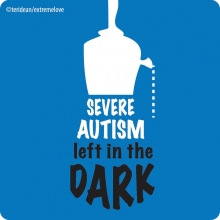The Mathematical Challenge to Obesity
on 1/9/15 6:43 am
Interesting, especially this:
"That the conventional wisdom of 3,500 calories less is what it takes to lose a pound of weight is wrong. The body changes as you lose. Interestingly, we also found that the fatter you get, the easier it is to gain weight. An extra 10 calories a day puts more weight onto an obese person than on a thinner one."
I have long contested the 3500 calories = 1lb of loss (or gain) and it ****** me off every time I see it posted on here. It takes no account of age, gender, metabolism and just being a human being!!! I can assure you that I can gain 5lbs without consuming an extra 17,500 calories on top of what I normally eat and I would expect that most of us can!
We absolutely are not all the same and so that blanket statement IS pure nonsense!
Proud Feminist, Atheist, LGBT friend, and Democratic Socialist

on 1/10/15 11:44 am, edited 1/10/15 11:45 am
That's the thing, though. A lot of the information out there, especially those widely accepted as fact, are generalities or blanket statements, as you say. It's good to see someone taking a closer look. I too could easily gain five pounds. Are you kidding me? All in a day's work. That's why I think this guy is on to something. I remember when I was thin, a 10-pound weight gain was a traumatic affair. As I got larger, seemed like I gained 10 pounds every time I sneezed.
on 1/11/15 7:34 am - Toronto, Canada
I've always shared this same thought! It annoys me when people reference it.
I have a couple of HUGE issues with this article. The two most glaring are below.
"Another finding: Huge variations in your daily food intake will not cause variations in weight, as long as your average food intake over a year is about the same. This is because a person’s body will respond slowly to the food intake. "
Um... No! Every dieter on the face of the planet (and clearly this man is NOT one of "us") can testify to the fact that drastically changing the way you eat on a daily basis DOES, IN FACT, result in weight loss! Almost everyone can lose weight when they drastically cut their intake (if this was not the case, no one would lose ANY weight with the band of sleeve!) the problem isn't losing wieght... The problem is sticking with the drastically decreased amount of food long enough to get the weight off and then doing it long term to keep it off. So the above statement by this man is absolutely ridiculous.
"Did you ever solve the question posed to you when you were first hired — what caused the obesity epidemic?
We think so. And it’s something very simple, very obvious, something that few want to hear: The epidemic was caused by the overproduction of food in the United States.
Beginning in the 1970s, there was a change in national agricultural policy. Instead of the government paying farmers not to engage in full production, as was the practice, they were encouraged to grow as much food as they could. At the same time, technological changes and the “green revolution” made our farms much more productive. The price of food plummeted, while the number of calories available to the average American grew by about 1,000 a day.
Well, what do people do when there is extra food around? They eat it! This, of course, is a tremendously controversial idea. However, the model shows that increase in food more than explains the increase in weight."
This statement is just as ridiculous! It would be next to impossible for someone to eat an additional 1000 calories per day eating additional foods grown by farmers (grains, vegetables, etc.)! Let's see... A cup of green beans or broccoli has LESS than 50 calories! Even if you put butter on them it would only take the calorie content up to less than 150 calories per cup. It would take 7 CUPS of one of those with the butter to increase your calories by 1000 per day! Even a starchy potato has only about 100 calories, plus another 100 or so calories for butter, so you would nend to eat FIVE baked potatoes to get that extra 1000 calories! Extra "production" of grains and veggies do NOT account for the obesity epidemic! People don't get fat eating extra vegetables. They get fat eating processed, high fat foods and sugar.
It boggles my mind that he looks at the increase in food production since the 1970s but does NOT look at the astronomical growth in fast food over that same period! WTH?!? He might be a good mathematician, but he is a lousy scientist/analyst!
Nothing against you, but perhaps whomever posted the link to this article originally deleted it because they theight about what it was saying and realized that it is a bunch of nonsense with no actual science behind it...
Lora
edited for typos/autocorrect issues
14 years out; 190 pounds lost, 165 pound loss maintained
You don't drown by falling in the water. You drown by staying there.
![]()






